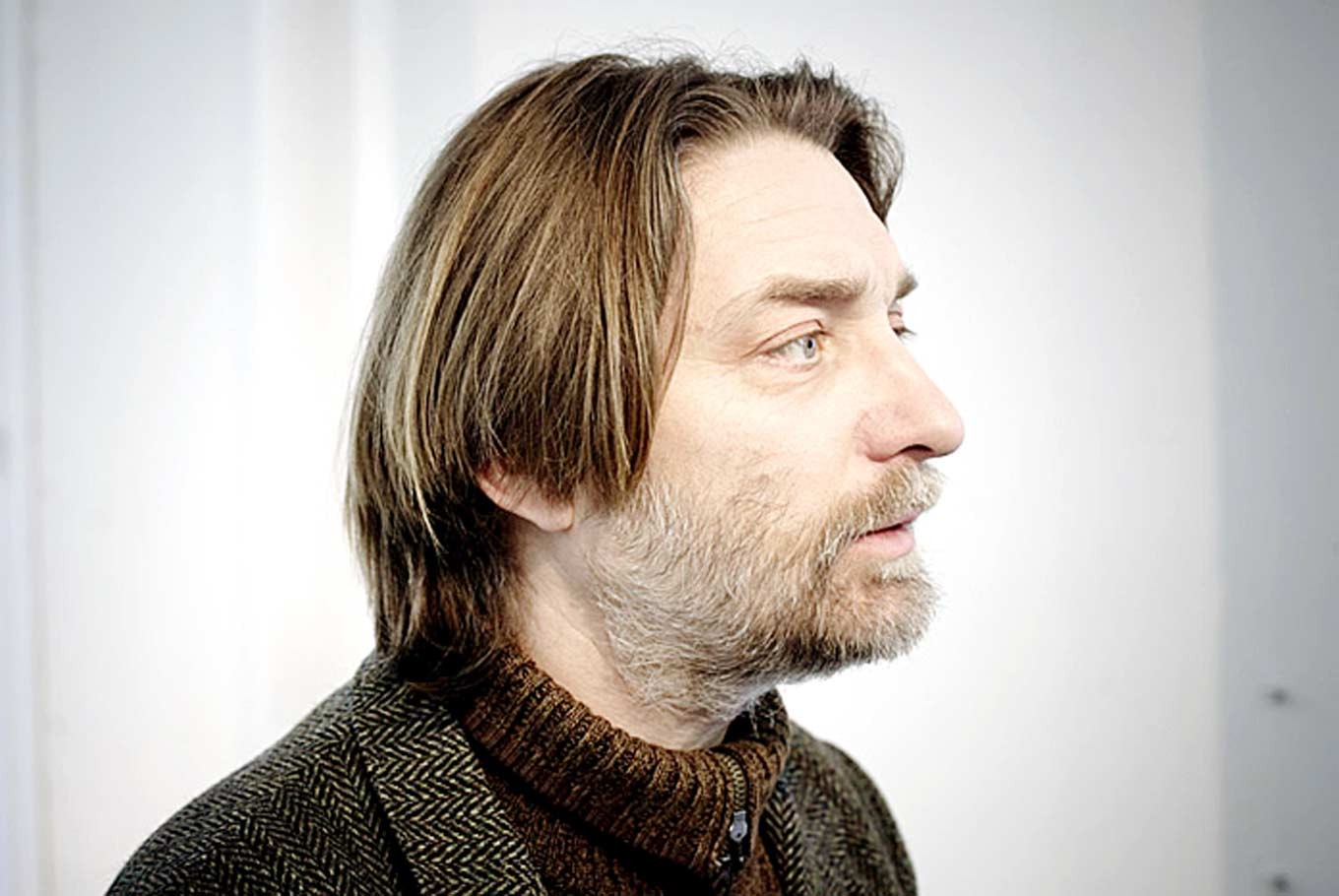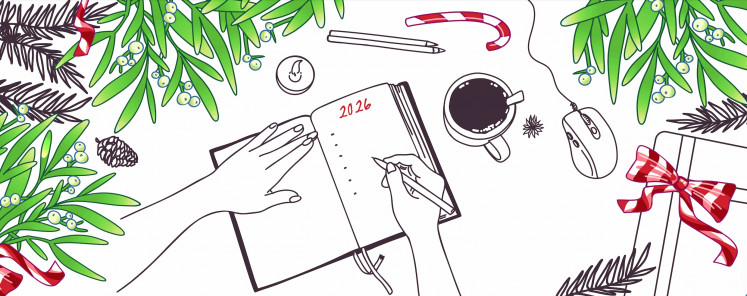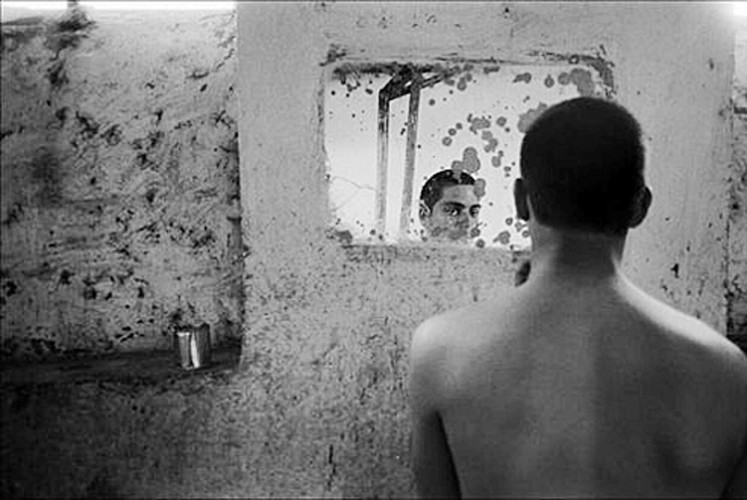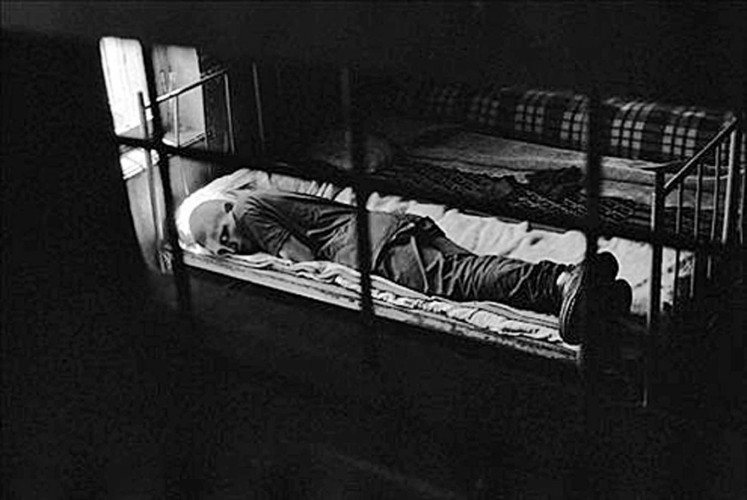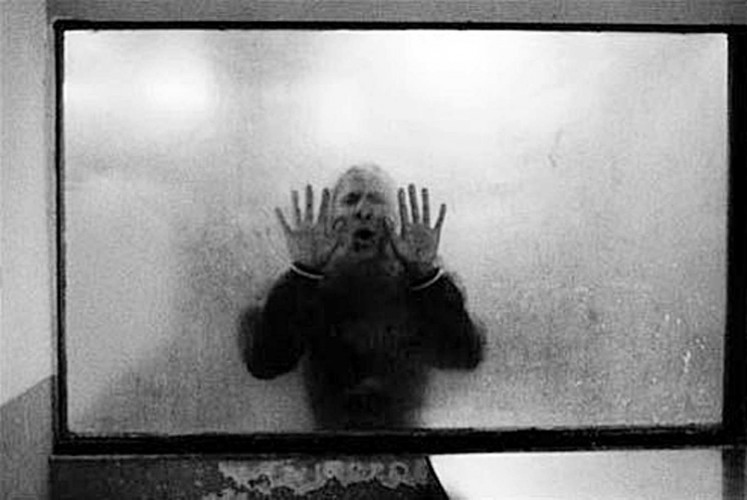Popular Reads
Top Results
Can't find what you're looking for?
View all search resultsPopular Reads
Top Results
Can't find what you're looking for?
View all search resultsKlavdij Sluban: Photography is life
Photography is a language and that it does not always come in written or oral form. It can also be found in images.
Change text size
Gift Premium Articles
to Anyone
T
he lights shone down as he stepped on stage. As he began to speak, a hush fell over the audience as he was about to deliver his speech.
It was just another day for renowned French photographer Klavdij Sluban who delivered a talk about photography at the Institut Français d’Indonésie (IFI) in Jakarta.
Sluban has travelled all over the world – this being something of a family tradition. He was born in Paris, but spent his childhood in Slovenia.
As Sluban moved from one place to another, he always took time to learn the local language.
“I travel to lose myself and to find myself. You can find yourself only when you lose yourself,” he said.
Photography has always been his passion ever since he was a kid growing up in Slovenia.
He said photography is a language and that it does not always come in written or oral form. It can also be found in images.
A photo from Adolescent Prisons series by Klavdij Sluban: Youth Detention Center, Khoni, Georgia, 2001. (Sluban.com/Klavdij Sluban)Sluban added that he wanted to share his feelings through photography.
“I’m the most happiest when audiences misinterpret my work because it means that everybody interprets it in their own way and imagination. That’s freedom. That’s art” he said.
Since starting his photography career at the age of 14, Sluban has showcased his work at exhibitions and workshops across the world. He has also received countless awards, including the Prix Niepece in 2000 and the Prix Leica Medal of Excellence in 2004.
His works have been displayed at several renowned museums, such as Helsinki’s Photography Museum, Seni Kanton Museum, Tokyo Metropolitan Museum of Photography, Texas Tech Museum, Rencontres d’Arles and Le centre Pompidou.
He has also published several books, Beirut Mission, EntreParentheses, Photo Poche, Traverses, Balkans Transit, Transsiberiades. His latest offer, East to Eastthat was seven years in the making, saw him travel through Eastern Europe, several Asian countries, Russia, Mongolia and China between 2001 and 2008.
A photo from Adolescent Prisons series by Klavdij Sluban: Youth Detention Center, Tbilisi, Georgia, 1999. (Sluban.com/Klavdij Sluban)Sluban’s distinctive style is in his elegiac black and white photography. He said he uses this type of style because it was what his eyes see.
He is not keen in capturing touristy places. He is more interested in streets, remote places, or areas that are home to a lot of people because he wanted to feel the real soul of his objects. According to him, touristy places were not real and felt fabricated.
“If the place is not true, I don’t feel anything,” he said.
One of his Sluban’s most renowned images has been his work on juvenile jails.
“When I travel I feel really free. The opposite of being free is being jailed. What is the maximum freedom? Is it to go to jail when you decide to go?”
A photo from Adolescent Prisons series by Klavdij Sluban: Youth Detention Center, Fleury-Mérogis, France, 1995-2001. (Sluban.com/Klavdij Sluban)During Sluban’s visit to the juvenile jails, he was not only taking photos. He also empowered imprisoned kids by arranging seminars and exhibitions about photography. He also gave them cameras and let them to take pictures.
“When I’m in jail I don’t show what jail looks like. I show what I feel in jail. I never question them [the kids] why they are in jail. Through photography, I help them to contemplate what makes them to be in jail,” he said.
“The kids are very creative. They are not predictable. They don’t know what they will do. They don’t calculate. They are very sincere.”
Sluban, who holds a master’s degree in Anglo-American literature, said his works were influenced by literary references.
“Literature is rich and photography is poor. What is interesting is that when you take something that is poor you have to invest in it to make it rich. While if something is rich, everything is done,” he said.
***
The writer is an intern at The Jakarta Post

